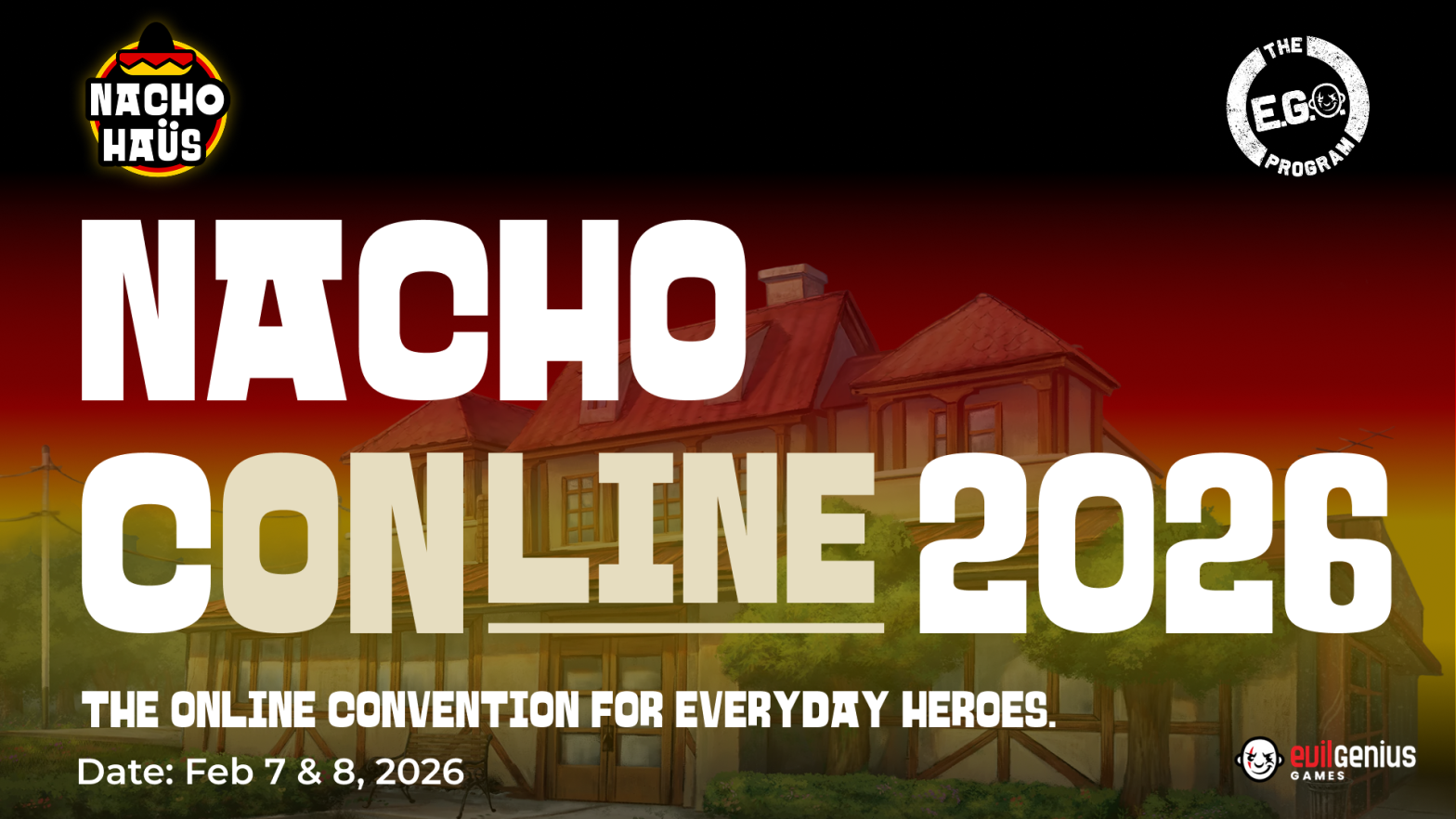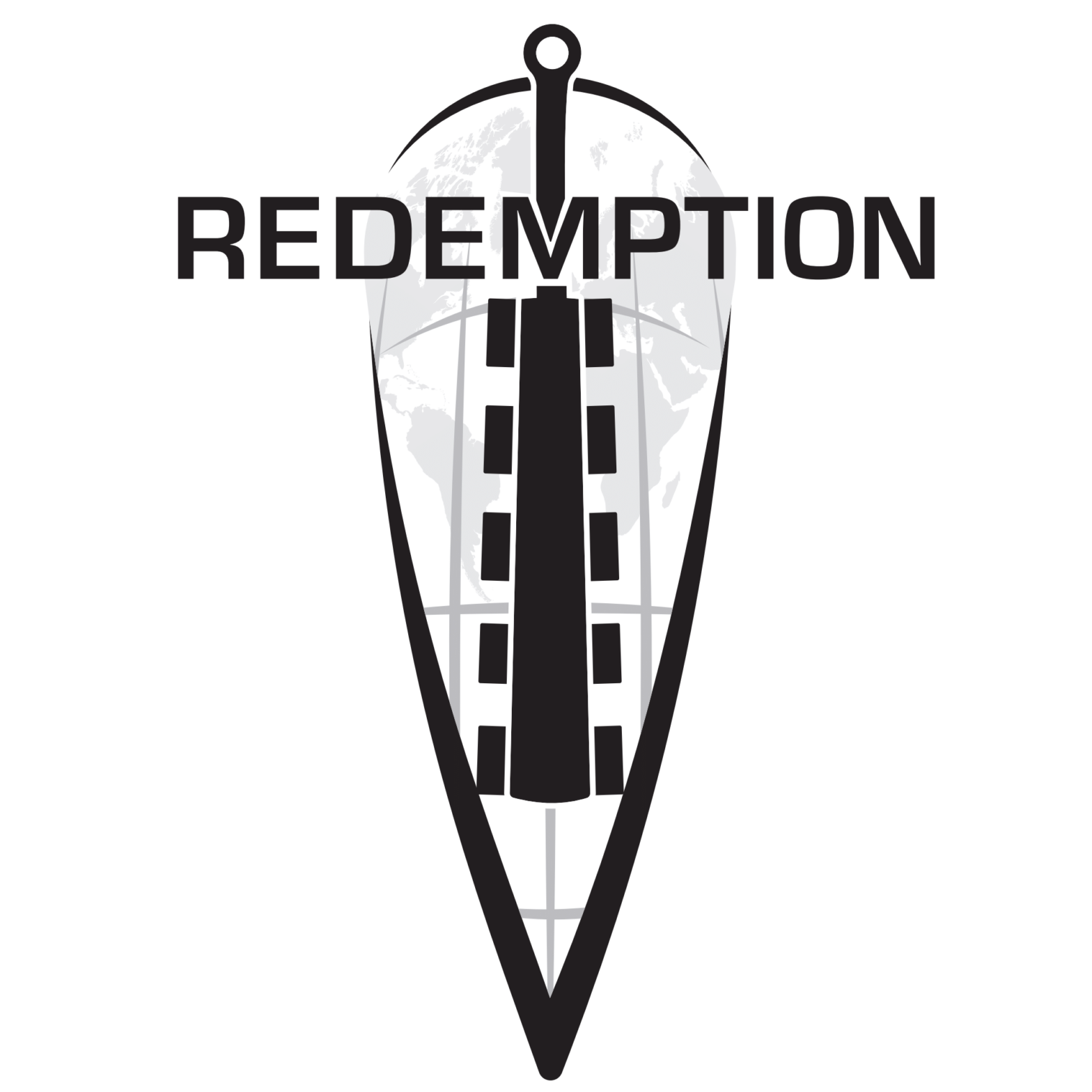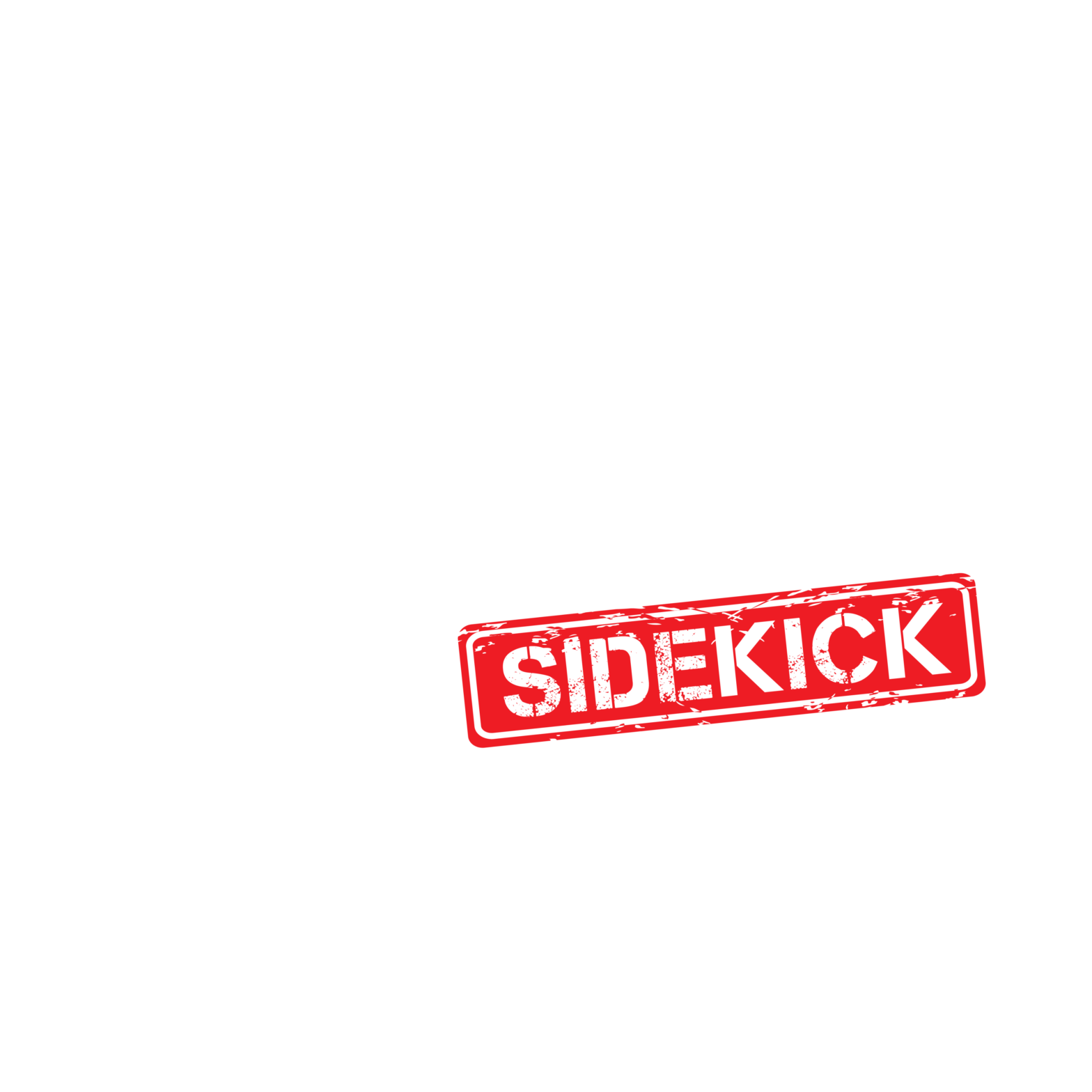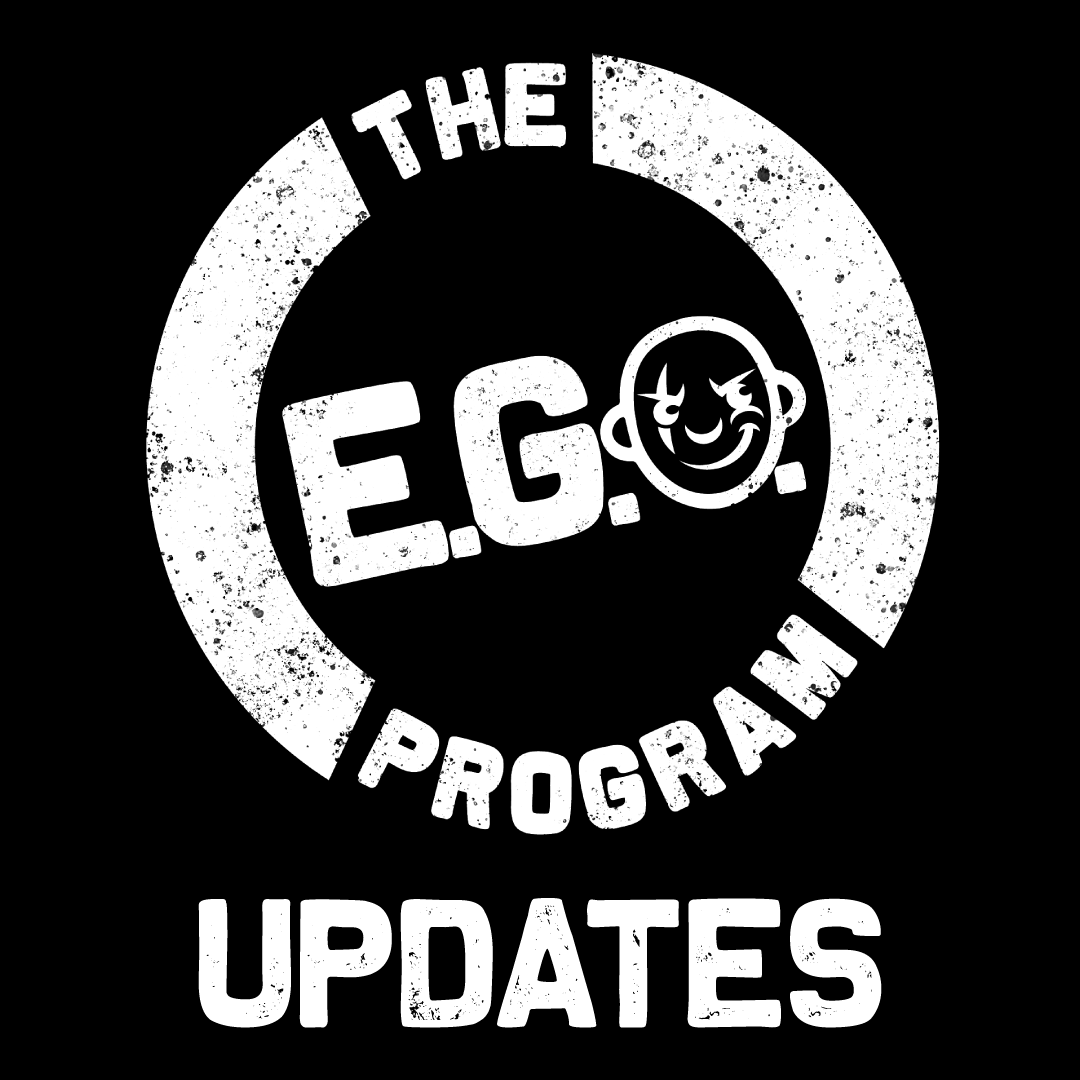As I continue my interviews with the staff of Evil Genius Games and their roles, it is my pleasure to interview someone with whom I am well acquainted, namely Awen Rowan-Nelson (full disclosure, my wife) and the Lead Editor at Evil Genius Games. I recently interviewed Awen about her work on the new Technology Code of Ethics. Here, we’re going to talk about a little-understood role that, if done well, you never even realize is there, which is editing.
Awen comes to Evil Genius from a life of varied accomplishments that strains credulity. Besides becoming an equestrian, riding instructor, and horse trainer who competed at a national-level, she was invited to train for the US Olympic Equestrian Team—all before she could get a driver’s license. She worked in a traveling candy-apple concession and was a member of the pit crew of a top-fuel motorcycle drag-racing team. She was an executive secretary and event planner in the hospitality industry, and a certified tax preparer. She also designed and taught innovative programs for both gifted and talented students and students with dyslexia and other reading disabilities. Later, she earned a PhD in Philosophy and became a university professor. She taught writing, philosophy, history, literature, comparative mythology, and honors courses at the university level, and is an internationally-recognized ethicist with an original ethical theory and work that has influenced a host of areas, including medicine, business, leadership studies, ethical game design, and others. She is a published author, editor, and proofreader of short fiction, poetry, academic and popular books and articles, world bibles, style guides, codes of ethics, and TTRPG games. And she now works full-time in the TTRPG industry.
Not bad for a high school dropout.
In any case, Awen is one of the, if not the, most broadly experienced and talented editors in our or any industry. And I know this from my own long experience as an author, writer, editor, world builder, script consultant, professor, and program manager. I am a fine editor; Awen is a damn fine editor. Let’s hear what she has to say:
Welcome back!
Thank you. I’m glad to be here.
I am interviewing you as our Lead Editor. But as our only editor at this time, you have to wear a lot of hats, don’t you?
Yes. In fact, the skill set required to be an editor at Evil Genius is actually quite extensive, and far more extensive than might be required of an editor at a large publishing house. This is because I do developmental (at times), content, line, and copy editing. At a larger publishing house, different editors would do these different kinds of editing at different stages of production.
And you’re the proofreader.
Yes, and the proofreader, which entails using a completely different set of cognitive skills than editing does. But fortunately, I have one of those strange brains that allows me to switch between editing and proofreading, and to do both well.
Strange brain, eh?
<laughs> Yes, but your readers will just have to trust me on that. The explanation is way too long for this blog. But, since you are well acquainted with my strange brain, please feel free to assure anyone who asks that I’m telling the truth.
<clears throat> So, almost everyone has heard of “editing.” But few people—and I know this is something that we have talked about before—have a very clear idea of what professional editors do. Maybe that is a good place to begin.
It is actually a great place to begin because many people have a lot of misconceptions about what professional editors do.
What’s the most common?
Thinking that editors merely correct errors.
Like punctuation and grammatical errors?
Yes. And typos, incomplete sentences, and…that kind of thing.
And that us not accurate?
Oh, it is accurate in that we correct errors and mistakes. But thinking that correcting errors is all that editors do is woefully incomplete. In reality, an editor’s primary responsibility is to improve the quality of the texts that become part of the published products. And this goes well beyond fixing errors. At Evil Genius Games, it always extends to improving the quality of the text and its language, and it can extend into other areas as well.
I know that these various areas are generally handled by editors in the different editorial roles that you mentioned earlier, but since we don’t have those stages in our production flow, what is editing like for you?
Well, most of the texts that I edit are written by people who are primarily talented game designers, but not professional writers per se. But, please don’t misunderstand me here: even professional writers—even famous ones—need and use editors. Anyway, I often begin by working to improve the language itself: things like clarity, flow, and sentence construction, while also ensuring the consistency and accuracy of the details within the game world. I may need to revise sections that are confusing or conflict with our rules, mechanics, or formatting, and I sometimes make changes to dialogue or descriptions to keep long-standing characters–like Walt DeWalt, for example–in character. Essentially, I do whatever is necessary to ensure that we will be publishing a well-written, consistent adventure that both reads beautifully and is fun to play. And I have to do all those things without altering the adventure’s essential content or the designer’s voice and vision.
What do you mean?
Every writer has their own voice and style of writing, and each writer’s voice and style is different. So, I have to edit each text in the voice and style of the original writer. While I might not have written something the way that the game designer has written it, for example, this is never the point. It is the designer’s adventure, not mine, and it is their name that readers will remember. So, I work extremely hard to make sure that the designer’s text is as good as it can possibly be while still remaining their own.
So, what kinds of skills does it take to work in the voice and style of another person, and with another person’s words, ideas, and vision?
Well, first of all, you must set your own ego aside. Second, you must be an excellent writer yourself, but one that is also experienced enough and attentive enough to details to identify the elements of tone, voice, flow, and overall style that make the writing idiosyncratically the writer’s own. And third, you have to know how to improve the language and some details without compromising the very characteristics that make the adventure the work of a specific writer. So, it helps that I am a published writer with a strong background in language, as well as an experienced writing instructor, an avid reader, and, of course, an experienced editor.
Anything else you want to mention?
Well, we haven’t talked about the role of an editor in providing writers with the guidance and materials that they need to become better writers, and to help them turn in work that is in line with our company’s standards and practices.
That is an important role, and usually involves writing a House Style Guide for the company.
Which you and I have now co-authored. I’m very proud of it. In fact, I think that it may be one of the most comprehensive—if not the most comprehensive—house style guides currently written for a company like ours and many others.
I think that’s true. So, tell the folks back home what the House Style Guide is:
Okay. The Evil Genius House Style Guide is a 90+ page reference document that covers everything that a writer needs to know about crafting high-quality, error-free texts for our company, including our company’s own best practices in style, grammar, punctuation, formatting, game terms, and more.
So, I guess the message here is that if you are a freelancer and want to submit work to our company, you should request or get a copy of the Evil Genius House Style Guide well before submitting your work?
Definitely, but this also goes for anyone that writes materials that are public-facing for Evil Genius Games. I am working toward having every text that will be read by the public—from advertisements to web pages—edited prior to publication. We are not there yet, but we are making good progress, and more people are remembering to send me these kinds of pieces all the time. I’m very proud of the improvement in the overall quality of what we present and publish that we have made as a company. We have a wonderfully talented and tremendously hard-working team whose members all really care about every aspect of the products that we publish. And I think this shows!
Me, too. Thanks for coming on and telling us about your work. And, speaking of running things by editing, would you mind looking this blog over when I get it written up? It’s due tomorrow.
Tomorrow? <long-suffering sigh> Okay, send me the link when you’re done.
Well, that’s all for now, folks. Next week, I will be interviewing Haley Pillion, our Executive Administrative Assistant, Organizer-in-Chief, and an Everyday Hero if there ever was one. In the meantime, you can keep up with Evil Genius Games on Twitter, Facebook, and Instagram, support our work while snagging some really cool stuff by joining our Patreon, and by joining E.G.O., our organized-play program, in which you can become an Agent of REDEMPTION and save the world online and at in-person venues around the globe.







Be the first to comment
Sorry but it seems you are not logged in.
To post the comment first you need to Sign In